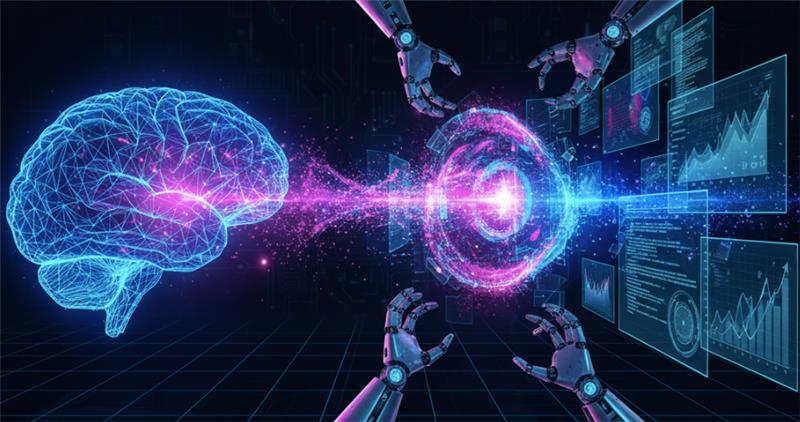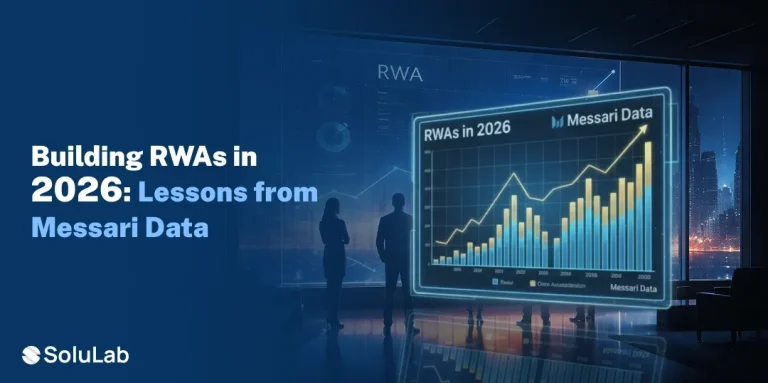
In 2025, the convergence of Artificial Intelligence (AI) and Blockchain is no longer just a futuristic vision — it’s already reshaping industries worldwide. Enterprises are increasingly turning to this synergy to unlock transparency, automation, and efficiency while ensuring security and trust.
This article explores 7 practical AI + Blockchain use cases already delivering measurable business value in 2025.
1. Supply Chain Transparency and Predictive Logistics
- AI contribution: predictive analytics for demand, route optimization, risk forecasting.
- Blockchain contribution: immutable record of every transaction, shipment tracking, provenance verification.
Fact: According to Gartner (2025), enterprises using AI + blockchain in supply chains reduced logistics costs by up to 23% and minimized fraud by 30%.
Example: IBM Food Trust integrates AI forecasting with blockchain traceability, allowing retailers like Walmart to detect potential supply issues in real time.
2. Fraud Prevention in Financial Services
Financial fraud costs the global economy $5 trillion annually. AI models can spot anomalies in transactions, but without blockchain, fraudsters may still manipulate data.
- AI role: detecting unusual patterns in real time.
- Blockchain role: providing tamper-proof transaction records.
Use Case: Decentralized finance (DeFi) platforms integrate AI-driven risk scoring for loan approvals, combined with blockchain smart contracts that auto-execute payments.
AI and blockchain are also finding applications in online gaming, where transparent payments and secure transactions are crucial. Platforms such as CasinoHEX Česko illustrate how blockchain ensures fair play while AI prevents fraud in real time.
3. AI-Powered Smart Contracts
Traditional smart contracts are rule-based. Adding AI enables self-learning and adaptive contracts.
- AI role: interpreting dynamic conditions (e.g., IoT sensor data, market trends).
- Blockchain role: executing agreements with full transparency.
Example: In global trade, AI-driven smart contracts can adjust tariffs, insurance, or delivery terms based on real-time conditions such as weather or port delays.
For example, blockchain and AI are increasingly used in online entertainment. Transparent payment systems, provably fair games, and automated fraud detection are now part of platforms listed in the ranking of online casinos for beginner players (ranking casino online dla początkujących graczy on the website pl.polskiekasynohex.org). By using this platform, newcomers can play in a safer and more secure environment.
4. Tokenization of Enterprise Data
Data is the new oil — but enterprises often struggle to monetize or share it securely. AI + blockchain provide a way forward:
- Blockchain: tokenizes datasets (e.g., customer behavior, IoT logs).
- AI: trains on tokenized data without breaching privacy (federated learning).
Fact: MarketsandMarkets forecasts the data tokenization industry to reach $5.2 billion by 2028, with AI integration as a main driver.
Use Case: Healthcare companies tokenize patient records on blockchain, while AI models use anonymized tokens for diagnosis predictions — ensuring compliance with GDPR and HIPAA.
5. Decentralized Autonomous Organizations (DAOs) with AI Governance
DAOs are communities governed by blockchain voting, but decision-making can be slow or biased. AI augments governance with predictive analytics and agentic AI advisors.
- AI role: suggesting policy updates, optimizing treasury allocations.
- Blockchain role: ensuring transparent and tamper-proof voting.
Example: In 2025, several investment DAOs are already experimenting with AI-powered treasury bots that autonomously rebalance crypto assets.
6. Energy Trading and Sustainability
Energy grids are becoming decentralized, and enterprises are under pressure to meet ESG goals. AI + blockchain ensure sustainable, transparent, and cost-efficient operations.
- AI: predicts energy demand and optimizes resource allocation.
- Blockchain: records renewable energy credits (RECs), enabling peer-to-peer energy trading.
Fact: A 2025 EU pilot showed 12% cost savings and 15% lower carbon footprint when AI + blockchain were integrated into microgrid systems.
7. Intellectual Property & Digital Rights Management
The rise of generative AI has created a flood of digital content — and copyright disputes. Blockchain + AI together solve this problem:
- Blockchain: verifies ownership via NFTs or tokenized IP.
- AI: scans the web for plagiarism, unauthorized use, or counterfeit products.
Example: Musicians in 2025 increasingly mint songs on blockchain while AI continuously monitors platforms like YouTube or TikTok for copyright violations.
Comparison Table: AI + Blockchain Use Cases by Industry
| Industry | AI Role | Blockchain Role | Benefit in 2025 |
| Supply Chain | Predictive logistics, risk analysis | Immutable product tracking | Lower costs, reduced fraud |
| Finance | Fraud detection, credit scoring | Tamper-proof transaction records | Safer, faster, fairer lending |
| Trade | Smart contract automation | Transparent agreements | Faster settlements, reduced disputes |
| Healthcare | Federated learning on patient data | Tokenized medical records | Compliance + innovation in diagnostics |
| Governance | AI-driven treasury & policy advice | DAO voting mechanisms | Smarter decisions, transparent execution |
| Energy | Demand prediction | REC tokenization | Greener, cost-efficient energy markets |
| Creative/IP | Content plagiarism detection | Tokenized ownership | Fair royalties, copyright protection |
Expert Insight
“The convergence of AI and blockchain in 2025 is creating a new layer of enterprise infrastructure. While blockchain guarantees trust, AI brings intelligence. Together, they form the backbone of the next generation of digital business ecosystems.”
— Dr. Elena Martinez, Tech Futurist at MIT Digital Economy Lab
Conclusion
The synergy between AI and blockchain is more than a trend – it’s a strategic necessity for enterprises in 2025. From logistics and finance to healthcare and sustainability, companies that embrace this convergence are already saving millions, boosting efficiency, and gaining competitive advantage.
Looking ahead to 2026, expect agentic AI + blockchain to power autonomous organizations, self-executing trade agreements, and even global-scale sustainability efforts.




